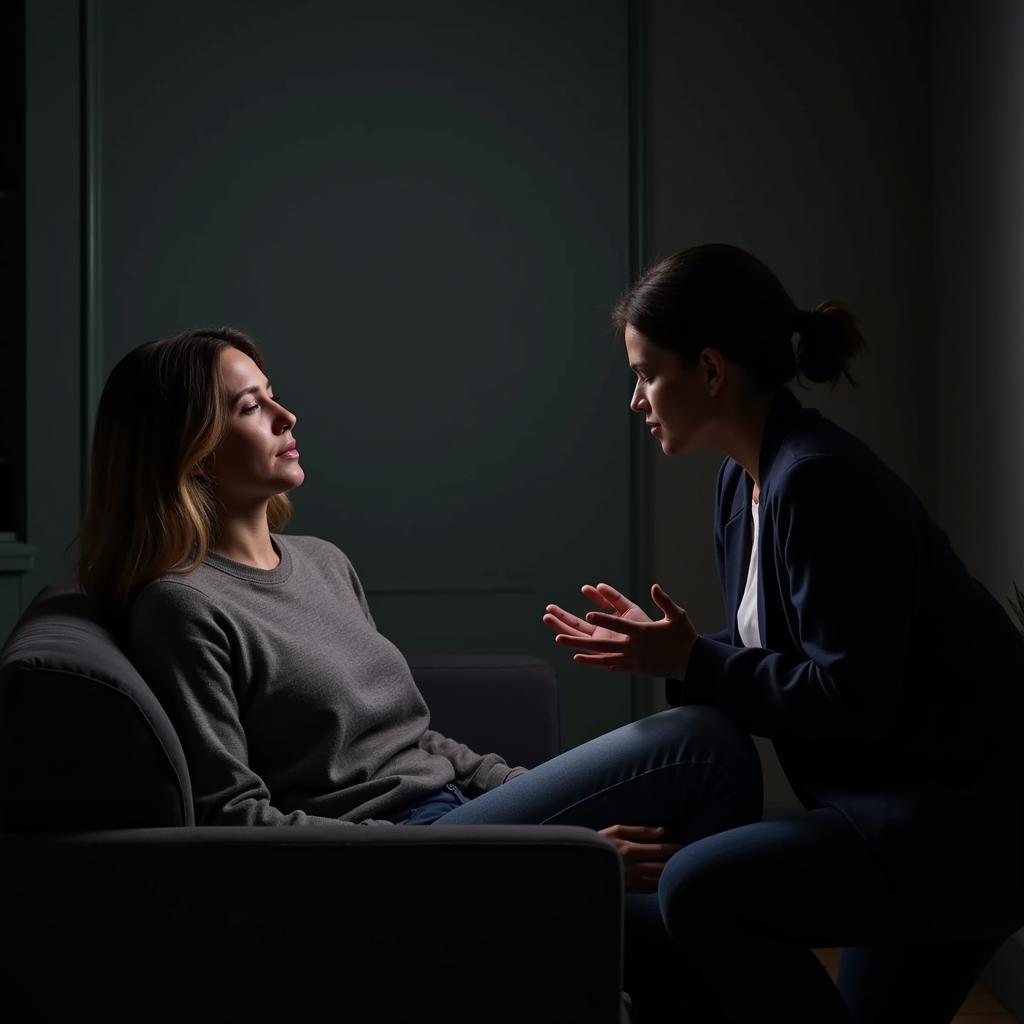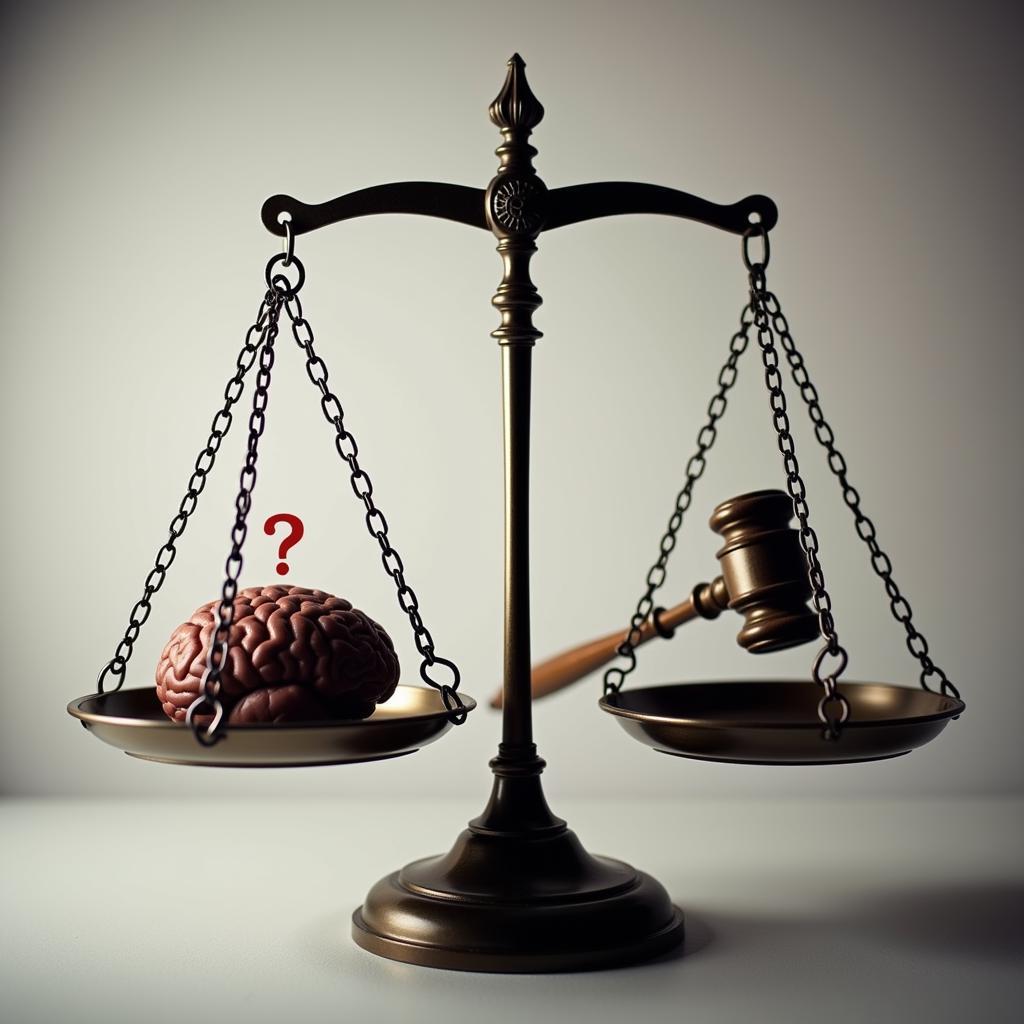Research Indicates That Memories Retrieved During Hypnosis Are often a mix of fact and fiction. This intriguing intersection of psychology and the paranormal has captivated researchers for decades, prompting questions about the reliability of hypnotically-induced recall. Are these memories accurate representations of past events, or are they merely fabricated narratives influenced by suggestion? Let’s delve into the fascinating world of hypnotic memory and explore what the research truly reveals.
The Complexities of Hypnotic Memory Retrieval
Hypnosis, a state of focused attention and heightened suggestibility, has been used for various therapeutic purposes, including pain management and overcoming phobias. Its application in memory retrieval, however, is far more controversial. While some individuals may experience vivid recollections under hypnosis, research indicates that these memories are not always reliable. Studies have shown that hypnotized subjects are more susceptible to leading questions and suggestions, which can inadvertently contaminate their memories. This susceptibility can lead to the creation of false memories – memories of events that never actually happened.
Are Hypnotically Recovered Memories Reliable?
The million-dollar question surrounding hypnotic memory is its accuracy. Can we trust what surfaces during these sessions? Unfortunately, the answer isn’t straightforward. Research indicates that memories retrieved during hypnosis can be a blend of accurate recollections, distorted perceptions, and entirely fabricated narratives. This makes it extremely difficult, if not impossible, to distinguish between genuine memories and those constructed under the influence of suggestion.
Furthermore, the very act of recalling a memory, whether under hypnosis or not, can alter it. Each time we access a memory, we reconstruct it, making it susceptible to subtle changes and distortions over time. This process is further amplified under hypnosis, where the heightened suggestibility can introduce inaccuracies and solidify false beliefs.
 Hypnosis Memory Retrieval Session
Hypnosis Memory Retrieval Session
It’s crucial to understand that the brain doesn’t store memories like a video recording. Instead, memories are fragmented and reconstructive. Hypnosis can potentially fill in these gaps, but with fabricated information rather than accurate details. This can lead to confabulation, the unintentional fabrication of memories, without the intent to deceive.
The Influence of Suggestion
One of the primary concerns surrounding hypnotic memory retrieval is the potential for suggestion to contaminate the process. Hypnotized individuals are particularly susceptible to suggestions from the hypnotist, which can inadvertently shape their memories. Even seemingly innocuous questions can lead to distorted or completely fabricated recollections.
For instance, a question like, “Do you remember seeing a red car?” might prompt a hypnotized individual to create a memory of a red car, even if no such car was present in the original event. This highlights the inherent vulnerability of memory under hypnosis.
Dr. Elizabeth Loftus, a renowned cognitive psychologist and expert on memory, emphasizes this point. “Hypnosis doesn’t improve memory,” she states, “it enhances suggestibility.” This heightened suggestibility can be problematic when trying to retrieve accurate memories, as it increases the risk of creating false or distorted recollections.
The Role of Leading Questions
Leading questions, those that subtly suggest a particular answer, can further complicate matters. Under hypnosis, individuals are more likely to accept leading questions as truth and incorporate them into their memories. This can lead to the creation of entirely fabricated memories based on the suggestions embedded within the questions.
Dr. David Spiegel, a psychiatrist specializing in hypnosis at Stanford University School of Medicine, notes, “Hypnosis is not a truth serum. It is a state of enhanced suggestibility, and that suggestibility can lead to both accurate and inaccurate memories.”
Ethical Considerations
The potential for false memories raises serious ethical concerns about using hypnosis in legal contexts or therapy focused on trauma recovery. The reliability of hypnotically retrieved memories is questionable, and relying on them can have severe consequences, particularly in legal proceedings.
 Ethical Considerations in Hypnosis Therapy
Ethical Considerations in Hypnosis Therapy
Conclusion
Research indicates that memories retrieved during hypnosis are not always reliable and can be influenced by suggestion and leading questions. While hypnosis can be a helpful tool for certain therapeutic applications, caution is advised when using it for memory retrieval. The potential for false memories underscores the importance of relying on corroborating evidence and seeking professional guidance when exploring past events through hypnosis.
FAQ
- Can hypnosis unlock repressed memories? While some believe hypnosis can access repressed memories, there is no scientific evidence to support this claim.
- Is hypnosis safe? Generally, hypnosis is considered safe when practiced by a trained professional.
- Can everyone be hypnotized? Not everyone is equally susceptible to hypnosis. Individual suggestibility varies.
- How long does a hypnotic session last? Sessions typically last between 30 minutes to an hour.
- Can hypnosis help with other issues besides memory retrieval? Yes, hypnosis can be used for pain management, anxiety reduction, and overcoming phobias.
- What are the signs of a false memory? False memories often feel as real as genuine memories, making them difficult to identify.
- Should I trust memories retrieved during hypnosis? It’s crucial to approach hypnotically retrieved memories with caution and seek corroborating evidence.
Need help understanding more about hypnosis and memory retrieval? Contact us! Phone: 0904826292, Email: [email protected] or visit us at No. 31, Alley 142/7, P. Phú Viên, Bồ Đề, Long Biên, Hà Nội, Việt Nam. We have a 24/7 customer support team.